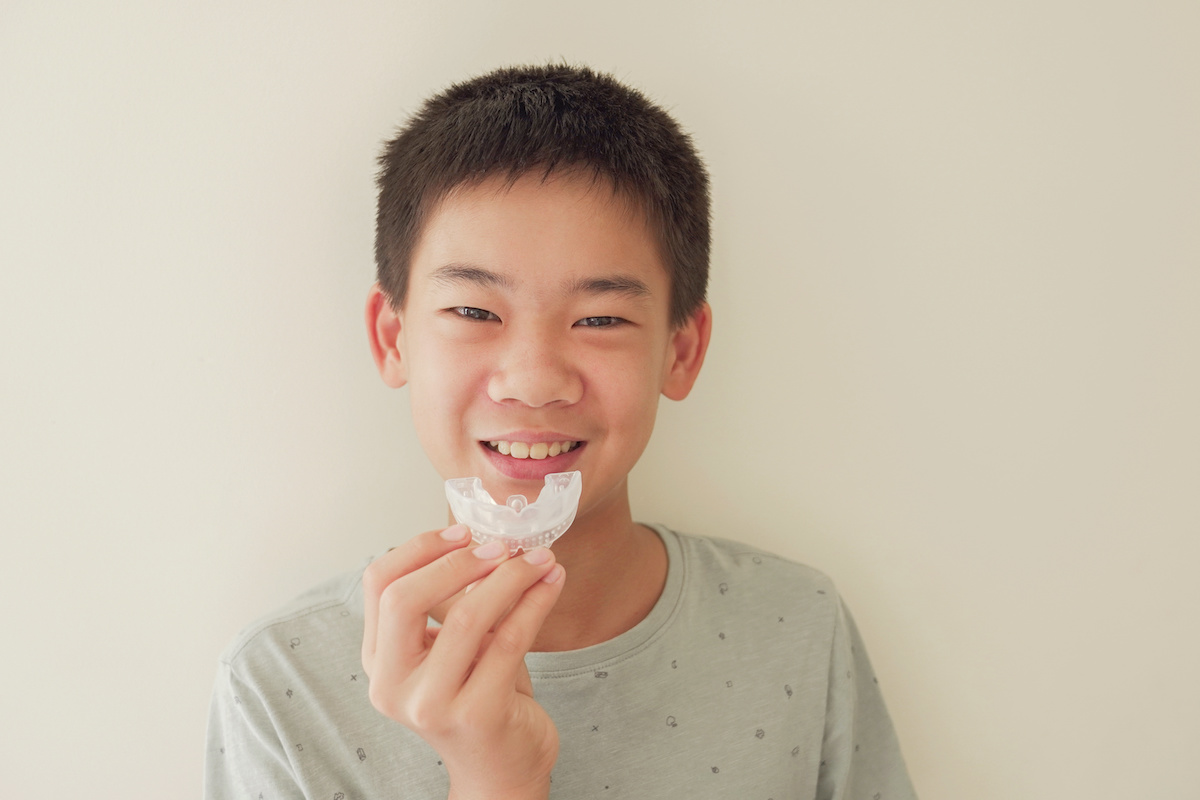School has begun. Autumn is starting. Pumpkin spice is sprouting up everywhere. And along with all that comes sports, specifically football and basketball in the fall and winter months. If your child loves sports and will be participating in either a town, city or school team, there will be plenty of chances for injuries. To prevent injuries, we highly recommend that you get a mouthguard. You can save thousands of dollars in tooth repairs and/or corrective surgeries by being sure your child has and uses one.
Are Mouthguards Really Necessary?
- Athletes are 60 times more likely to have an injury to the teeth without a mouth guard.
- Up to 39% of all dental injuries are sports-related
- Sports-related dental emergencies account for up to 600,000 emergency room visits per year.
Clearly, mouthguards are as important a part of sporting equipment as a pair of sneakers and a helmet. So, what type of mouthguard would be best?
Types of Mouthguards
Boil and Bite Mouth Protectors are exactly as the name describes. The mouthguard is put in hot water. After it softens, it is inserted into the mouth and bitten down on, then shaped and pressed into the teeth with pressure from a finger and tongue.
Custom-fitted mouth protectors are designed specifically from an impression of the teeth. Your dentist will make a form, then create the guard from special material. A lot of care and time is put into making the guard, so it is the higher-priced of the options, but it will provide quality comfort and protection. And it will save money in the long term as it will cost less than emergency dental work.
If there are braces or other dental appliances involved, your dentist will know the best way to accommodate them.
A good quality, custom-fit mouthguard should resist tearing, provide a comfortable fit, be durable, be easy to clean, and allow for clear speaking and easy breathing.
Are Mouthguards Just For Kids?
No, anyone involved in sports, from the very youngest T-Ball player to the oldest professional athlete should be wearing a mouthguard. Any time there are objects flying, or swinging or contact of any type, the mouth, jaw and head should be protected.
Caring For A Mouthguard
When the mouthguard is not in use, it is important to keep it clean and dry. Here are some additional tips for helping to preserve and maintain a mouthguard:
- Rinse it before and after use, even better brush it with a toothbrush and toothpaste.
- Regularly wash it in warm soapy water and dry it thoroughly.
- During regular dental checkups, bring your mouthguard, so your dentist can check the fit and give it an extra good cleaning.
- Store it and carry it in a solid container with vents, so air can circulate around it.
- Do not leave it in the sun (hot car) or hot water.
- Double-check for fit and signs of wear and tear.
- Keep your mouthguard away from your family pet, as they can mistake it for a chew toy or something to bat around the house.
To get more details about mouthguards, contact us today. We’ll be happy to provide more information.

